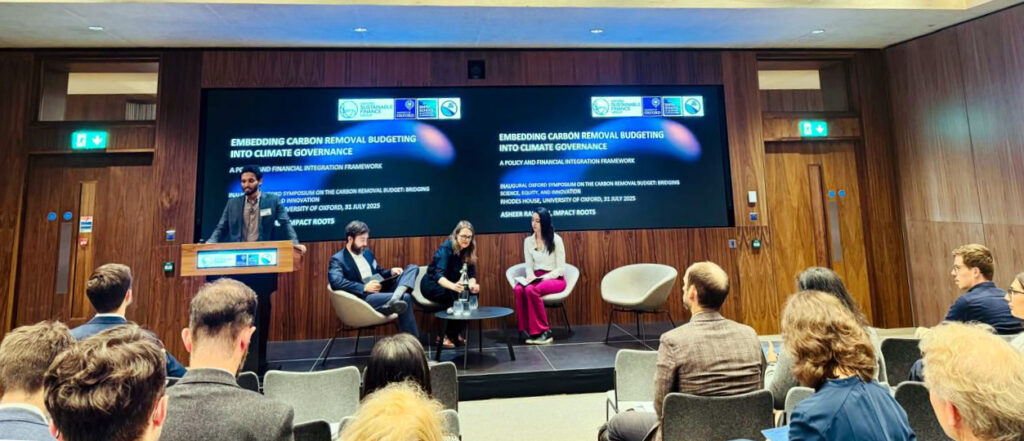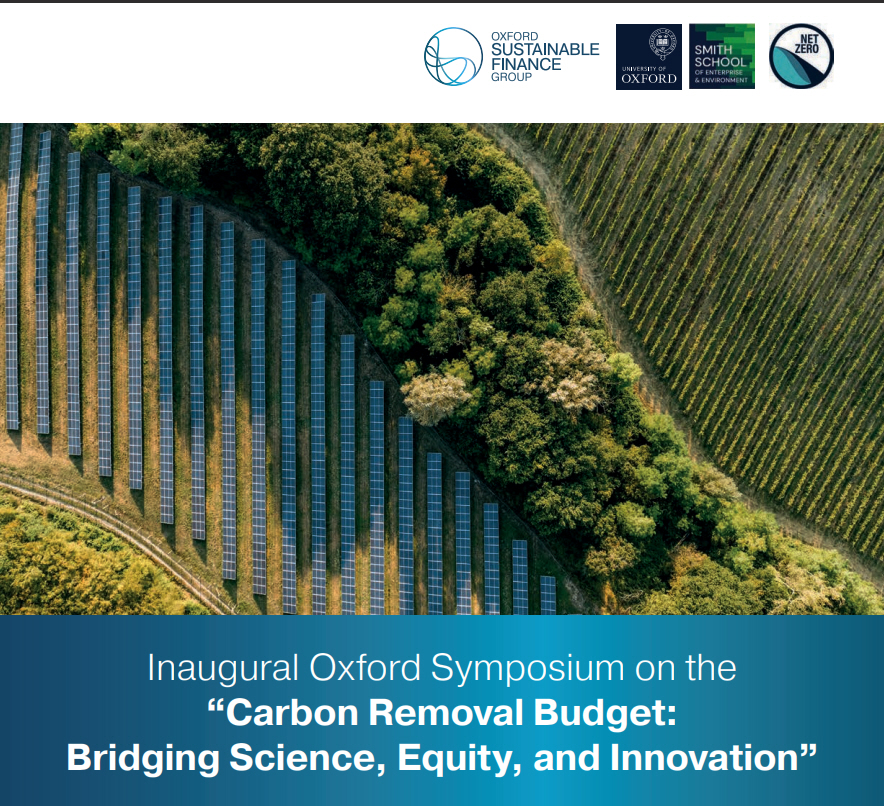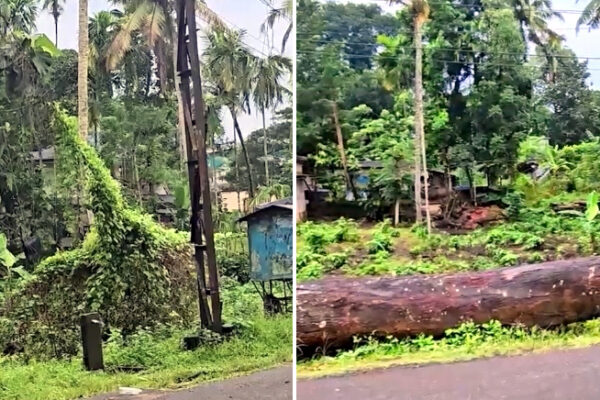
In a proud moment for the global Malayalee community, Kerala-born climate-tech expert Asheer Rahman delivered a groundbreaking lecture at the University of Oxford this week, unveiling a bold new model that could reshape how nations tackle climate change.
The lecture, held at the prestigious Smith School of Enterprise and the Environment, was attended by top climate scientists, financial regulators, and policymakers from around the world. Rahman’s message was clear: if countries want to reach net zero, they must stop treating carbon removal as an optional extra — and start budgeting for it like they do for national spending.

“We Budget Our Money — Why Not Our Climate?”
In his talk titled “Embedding Carbon Removal into Climate Governance”, Rahman introduced the concept of Carbon Removal Budgeting (CRB) — a framework to integrate carbon drawdown directly into economic and policy planning.
“You wouldn’t run a country without a financial budget,” Rahman said. “So why are we trying to save the planet without a carbon removal budget?”
His model covers everything from reforestation and community-led projects in India, to high-tech carbon capture in the UK — aiming to connect local climate solutions with global systems.
Linking Wayanad’s Villages and Westminster’s Policies
Originally from Wayanad, a district deeply affected by landslides and erratic weather, Rahman’s journey has taken him from Kerala’s hillsides to high-level climate platforms. In India, he’s already helped design carbon credit programmes involving over 2 lakh farmers, and is working with local governments to integrate carbon budgeting into Panchayat plans, supported by blockchain tools and climate bonds.
At the same time, Rahman is advising UK policymakers as they prepare to include carbon removal in the country’s Emissions Trading Scheme by 2029. He welcomed the UK’s high standards but warned that overly strict rules could exclude affordable, nature-based solutions from countries like India.
“We need smart, science-based policies that also respect the realities of communities on the ground,” he said.
Oxford Applauds a Kerala-Born Climate Thinker
Oxford faculty praised Rahman’s lecture as a “visionary blueprint” for aligning public finance, climate science, and social equity.
Dr. Eleanor Watts of Oxford Climate Policy Initiative said, “What Asheer has delivered is not just policy — it’s a practical roadmap to embed carbon removal into national planning, from village councils to central banks.”
A white paper co-authored by Rahman and Oxford scholars is expected later this year, with possible pilot projects in both India and the UK.
A Global Malayalee Making an Impact
Asheer Rahman’s career spans continents. He has advised NITI Aayog in India, co-chaired the Carbon Pricing Group at the UK’s Institute of Actuaries, and founded NodeIn Instruments and Impact Roots, two organisations delivering climate-tech solutions in both developed and emerging economies.
Despite his international reach, Rahman remains grounded in his Kerala identity.
“My roots are in Wayanad,” he said after the event. “It’s the communities I grew up with that inspired my work. This journey is about ensuring that rural voices are heard in global climate conversations.”
A Wake-Up Call for Policymakers
Rahman ended his lecture with a call to action:
“Carbon removal is not a future option — it’s today’s necessity. If we want to secure livelihoods, ecosystems, and long-term survival, we must invest in climate budgets now.”
For Kerala, a state already experiencing the harsh realities of climate change, Asheer Rahman’s voice on the global stage offers hope — and a powerful reminder that local knowledge and global leadership can go hand in hand.






